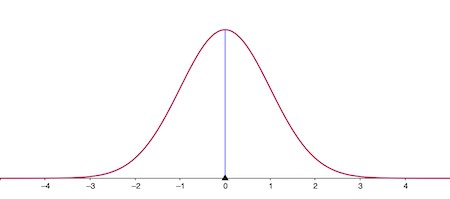To fully understand how a state’s operations run, studying political science is a must. While the traditional way to study political science would be to attend a college and obtain a degree, self-learning is also possible.
To study political science on your own, you need to spark an interest in the field, after which you gather materials using a curriculum. Reading literature on politics is also a necessity since you won’t have access to class discussions. Lastly, it will help if you get familiar with your state’s constitution.
The differences in state laws and human values sometimes limit the progress of studying Political Science, especially when studying alone.
Thankfully, you have this guide to show you how to successfully study political science.
Step-by-Step Process to Study Political Science on Your Own
Political Science may not be the easiest course to study by yourself, but with this guide, you are on your way to achieving this goal.
Step 1: Spark Your Interest
When dealing with subjects like Political Science, you need to be fully interested and invested. The political science field involves a lot of reading and patience, so if you are not interested, you might give up before you even begin.
Self-motivation is also very important and works better when you are interested in learning.
Usually, one factor that might drive an individual to want to study political science, especially on their own, is the situation of things in their state.
This fact is to say; that if you need somewhere to look for strength and to stay motivated, you should look at how the affairs of your state are being run and think of the ways you feel can make the operations run better.
-> Read Also What Is An Autodidact?
Step 2: Understand the Basics
If you are truly interested in getting familiar with the study of political science, there are some concepts and ideas you should be familiar with even before reading. For the sake of clarity, some of them are:
The History of Your State
You cannot claim to be interested in learning how politics work in your state and not have any knowledge of the political history in that state.
You should be able to identify and differentiate the periods that now define the state’s politics.
It is often said that to understand the happenings in the present, you may want to take two steps back into the past.
This saying also applies to the laws of politics because the current state of any country is always tied to their history.

A good read would be,
- The great reset: And the war for the world by Alex Jones – United States
- History of Britain and Ireland: The definitive visual by DK – Britain
Below is a short video on the history of complex government in the west African kingdoms
To understand the dynamics and dynasty system of China historically, you can read this analysis below
Know Your System
As you study political science, getting acquainted with the political history and the system that applies to the state is important.
To understand this, you need to know the different political systems that are available.
The constitution of the state also applies to the working of the system. An individual looking to study political science, especially in a particular state, should know the laws that guide the state embedded in the constitution.
The election system is another important part of this knowledge base. If you do not know what type of election system is practiced in your state, moving to study political science in that same state then will prove harder than you would expect.
Next, get acquainted with the political parties in your state. You would need to get a good grasp on what kind of party system your state operates so you know how to address situations.
Understanding the structure of your government will also come in handy.
The parliamentary system and the participation in the parliament are also one to look at when trying to understand a state’s system.
In a nutshell, any individual looking to study political science, especially on their own, must make sure they know these systems before going further.
The political parties in your state are also part of this system. Also, it would help to understand the structure of your government.
For this purpose, we will consider three major types of party systems:
- One-party system where only one party controls the governing processes. It is similar to the dominant party system, and countries ruled by a monarch are by default a one-party system.
- Two-party systems where there are two parties typically struggling to have the power of governing the state fall to their hands. They have equal struggles and typically have opposing ideologies.
- Multiparty system where there are many political parties with the power of forming the governing body able to fall on any of them.
Examine the table below. It shows you some countries and the type of party system they have.
| S/N | Country | Party System | Party | Parliamentary System |
| 1. | United States | Multiparty system | Democratic, Republican, Libertarian, Socialist | The Congress |
| 2. | United Kingdom | Two-party system | Conservative party and Labor party | Parliamentary Monarchy |
| 3. | India | Multiparty system | Indian National Congress, Communist Party of India, Bahujan Samaj party, All India Trinamool, Bharatiya Janata party | Supreme Legislative body of India |
| 4. | Cuba | One-party system | Cuba communist party | The National Assembly of People’s Power |
| 5. | South Africa | One-party system | African National Congress | A Parliamentary Republic |
Current Affairs

As a political science student, you should always be up to date with matters that affect your state. This tip helps you stay on top of issues that require analysis and a professional approach.
It also helps to sharpen your mind, preparing you for any matter that may arise. The current affairs of a state can be described as political play in action, so it is important to be able to follow these moves as they go on.
You can achieve this by having a good relationship with your news outlets. You may decide to use the internet, radio or even the newspapers.
Still, we advise that whichever medium you use for your information, you check out another from a similar source to verify the news.
You should not only keep up with the affairs of your state only. Understanding foreign states’ techniques and political systems can also help you better understand how your state works.
To stay on top of political situations at all times, you can always check the World Politics Review for up-to-date information on changes in the political scene.
Watch this nine-minute video on Maharashtra Political crisis in 2022 below
Maharashtra political crisis 2022 Explained under 9 minutes | Will Shivsena split?
Step 3: Reading and Analyzing
Most of the work involved in learning political science lies with reading and how you analyze all that you have read.
You must be able to sort your reading materials in an organized manner to avoid feeling overwhelmed.
Sorting the Syllabus
When you are prepared to start reading these political science materials, you must use a syllabus to gather all the necessary resources you will need.
Doing this helps you sort your reading and materials that will ensure you grow into the discipline. It is important you know to sort your reading so you don’t end up reading materials you can do without.
Some introductory syllabi you can check out include:
As a beginner, you should focus on introductory topics first to get your standing before moving on to the next step. You can always search online if you need to check out other reading materials.

Getting The Texts
The syllabus serves as a guide and comes with a reading list for you to know what books you should get..
Note that these books will often include some history texts to guide you and help you understand how politics got to where it is today.
We have selected a couple of recommended books to help you learn better, and they are:
- Political science is for everybody
- Introduction to cyber politics and policy
- Comparative politics
- A mathematics course for political and social research
- Cases in comparative government and policies
- The basics of American Government
- On Democracy
These books have been carefully selected for beginners in political science, making it even more ideal for individuals looking to learn this discipline independently.
As you go through these texts, you should remember that citing analysis done by professionals in political science can help you learn better and faster. Some you can look at are:
Taking Online Courses
You will find that many self-learners do not know they can learn whatever discipline they choose online and for free. Some universities offer political science as a course you can study online.
It would help if you looked at these free courses because qualified individuals mostly teach them..
Below are some of the popular courses you can take online.
- Saylor Academy- Introduction to Political Science
- EDX- Comparative Political System
- Alison- Political Ideologies
- Coursera- Moral Foundation of Politics
- Harvard University- Systematic Approach to Policy Design
For every self-learning political science student, it would be best to look into analysis since it is a more broken-down explanation of what you would normally find in books.
This move will aid you in assimilating faster.
Difficulties in Studying Political Science
There might be some hindrances to properly understanding what message political science is trying to convey.
This difficulty is not to say that it makes the discipline impossible to study. It only means some factors can make it harder, some of which include:
1. Ambiguity
Unlike some disciplines where every variable or hypothesis can be tested and verified, political science is not posed with this luxury. Various factors can affect the way we understand the discipline.
It would be easier if everyone had the same set of values, but some variables affect the outcome of political analysis, and the popular ones are:
- Fundamental Beliefs
- Religion
- Cultural Differences
- Values
- Ideologies
You may be wondering how it is possible for these non-political factors to affect how the politics of a state is set.
It would be best if you do not forget that it is still humans controlling every level of the government, and they are different and are driven by their values.
While a state might have a constitution meant to guide these operations, you find that this human factor is still reflected in this constitution. A common example is different state laws on same-sex marriages.
The point remains, for a more scientific approach, scientists can test variables to reach an acceptable conclusion, but for political science, these differences will always be a hindrance to achieving one generally acceptable result making it harder to analyze.
As you study political science, you will realize that the implication is, what works for state A may not work for state B, making it hard for any analysis to come to one generally acceptable finding.
2. Power Tussle
You may want to study political science because you have seen a lot of unjust and unfair rulings due to power imbalance and now, all you want is to change the unfairness.
As you study this discipline, you will realize that this power imbalance is a key feature of politics and has to be that way. Your analysis will pose you with a question; how does the government control the state without power?
As you go further, the study and analysis would better direct your focus to how to make power work for the state, but if you aim to try eliminating the idea of power or trying to balance the concept, you will find that this move will prove impossible.
You have to accept that power, however managed, cannot be evenly distributed among the citizens of a state. This distribution is statistically explained using the bell curve.

The bell curve shows the most likely probability of any even distribution. Applying this rule to political science, you will find the people with power at the top of the chain and, at the bottom, the people without.
This distribution depicts that there are subjects on all sides for every high power, which is the most likely outcome for any even distribution curve.
You may even call it the natural order of distribution.
3. Definitions
We learn that defining terms clearly and carefully is important in the sciences before conducting any study, which remains valid for political science.
In fact, carefully is the ideal word we should use in political science.
Words that have one meaning in simple language can have a more political meaning to the term, which means when using definitions in political science, you cannot use the terms loosely.
Let’s look at an instance; the word “equality”, when defined in simple language, translates to a positive point.
When you think of equal rights or equal pay, they tend to be terms you see as positive, and you support them.
This result is not always the case for studying political science. In analyzing if you use this same term loosely, you may appear to be aligning with the negative side.
For example, not everyone would say equality of distribution or equality of opportunity is on the positive side.
If you use the simple definition of some terms directly in your analysis of political science, you might be saying another thing entirely.

Career Opportunities in Political Science
The career opportunities it is surrounded by are almost endless for a discipline like political science.
This factor is because, in a way, political science touches every aspect of all it takes to run a state, from political affairs to even business transactions.
There is a common misconception that all political scientists end up as politicians, which could not be far from the truth. Let’s look at other career paths you can follow if you study political science.
Note that these careers are only valid if you have the right credentials to back them up, so you should consider taking a full-time course to apply for these jobs even as you learn on your own.
For clarity, these career paths have been shared into eight categories. Here is a table explaining this.
| S/N | Discipline | Job Opportunities |
| 1 | Government | Policy analyst, press aide |
| 2 | Corporate Business | Data analyst, public relations officer, consultant |
| 3 | Media | Reporters, correspondents, writers, editors |
| 4 | NGO | Advocate, development manager |
| 5 | Education | High school teacher |
| 6 | Marketing | Researcher, creative executive |
| 7 | International Relations | Diplomat, International relations officer |
(Source: Best colleges)
-> Learn More about Self-Learning vs. Classroom Learning: Which Is Better?
Frequently Asked Questions
Below are some of the most asked questions about the study of political science
Q: Is Political Science Hard to Study?
Without proper knowledge of the basics of political science, an individual may find it harder than usual to grasp the idea of what political science means, making it harder for some to learn.
Q: Does Political Science Affect the Relationship with Other States?
Every state has laws that guide the politics of the state, but when it spreads to other neighboring states, it becomes international relations.
Q: How Many Years Does It Take to Study Political Science in College?
It takes about four years to complete a degree in political science in an average university.
-> Learn more about the 7 best websites for self-learning
Final Thoughts
Political Science is one of the topics we know will always be relevant because as long as we have a government that conducts the affairs of a state, that state will always need political scientists to analyze and explain their behaviors and its implications.




